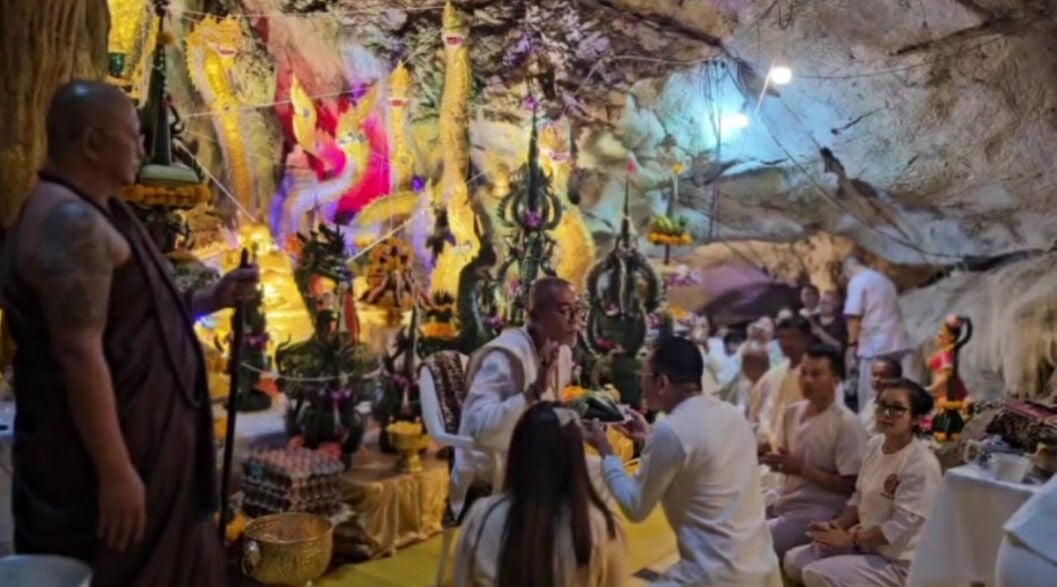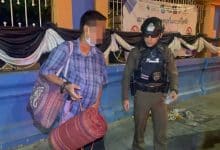Naga’s eyes open wide: Cave ceremony stuns Thailand devotees

A ceremony to reveal the eyes of the Naga statues in the Ruesi Sombat Cave in the Phetchabun province caused astonishment among devotees. The event, led by the head monk of the Sombat Cave, Phra Ajarn Sakol Kosolo, and witnessed by over 300 participants, involved rituals to honour deities and sacred entities.
The cave, with historical significance dating back to World War II, was once designated by Prime Minister Plaek Phibunsongkhram to store national treasures.
In an extraordinary display of faith and mysticism, attendees at the Ruesi Sombat Cave participated in a ceremony to unveil the eyes of 11 Naga King statues, believed to be guardians of treasure within the cave. The head monk, Sakol Kosolo, presided over the ceremony, which also included a prominent local administrator of the Sky Walk in Khaokho as the lay chairman.
Devotees from Ayutthaya province and the surrounding area were present for the ceremony, which began with traditional dance offerings.
During the ritual, some participants entered trance-like states, exhibiting various movements or slithering on the ground, reminiscent of snakes. Such occurrences were calmed by the touch of Phra Ajarn Taweesak, who was also leading the ceremony. The unusual scenes at the event left many onlookers in awe.
Sakol Kosolo shared that during his early days of meditation in the cave, he had visions of a family of Naga kings, both large and small, transforming into half-human, half-Naga beings and communicating their role as protectors of the cave’s treasures. This revelation led to the creation of the Naga King statues by a devoted sponsor, aiming to offer blessings to followers and believers.
Fortune telling
A notable part of the ceremony was a fortune-telling ritual involving incense sticks, which yielded the number 069. Participants eagerly recorded this number, hoping it would bring luck in the upcoming lottery draw on Friday, February 16.
The Ruesi Sombat Cave holds a storied past, especially during World War II, when the Thai government, under the leadership of Plaek Phibunsongkhram, sought to relocate the capital to Phetchabun.
In 1944, the government established the Ministry of Finance within the cave, intending to safeguard national valuables, including gold and precious artefacts such as the Emerald Buddha. However, the relocation plan was never ratified, and the treasures were eventually returned to their original locations.
Today, the once-abandoned cave has been restored and has become both a tourist attraction and a meditation retreat, preserving its historical legacy.
Latest Thailand News
Follow The Thaiger on Google News:


























